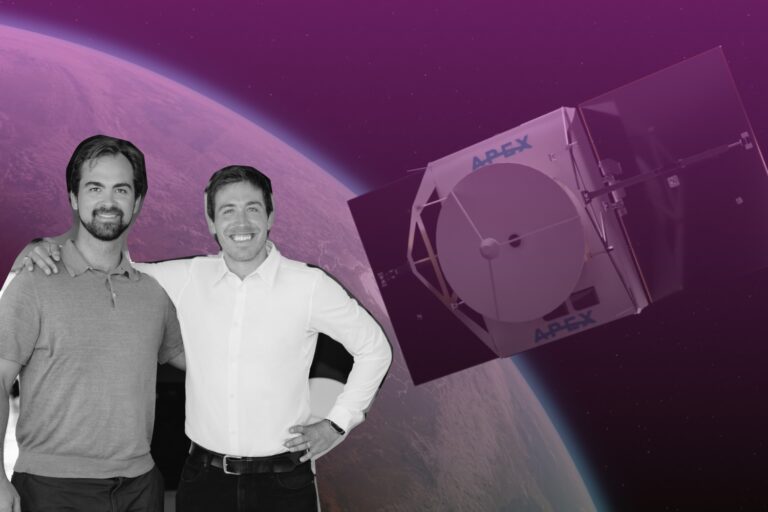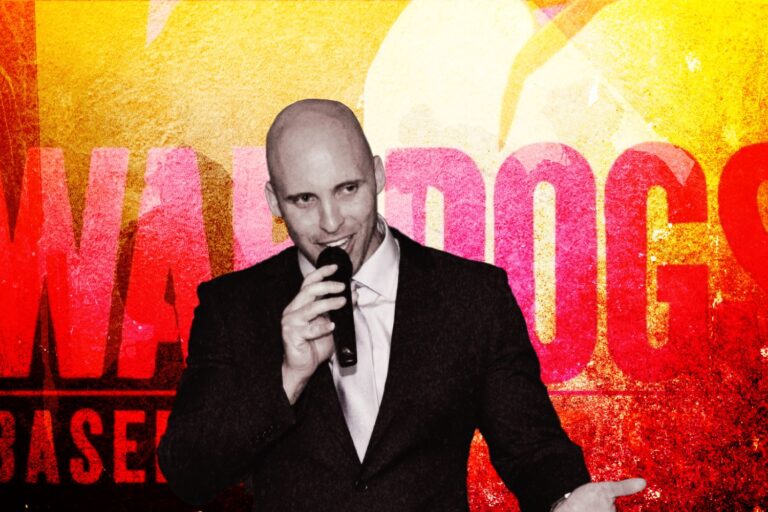The One We Need – How Fabiola Quest to Offer Real Changes to the Government
“People are always asking the US Government, what are they doing with marketing and communications, no one really ever understands that. When you think about an enterprise like the Department of Defense, Army, Air Force, Navy, National Guard, people are like, what are they doing with marketing, the answer is they have to recruit,” said Fabiola Fleuranvil.
One key element of military readiness is being able to recruit, for the combat force, but also on the civilian side of the table. All of that is marketing and advertising, being able to instill confidence in America in terms of the strength of military power, and adopt new technologies to support our combat readiness.
That’s exactly what Fabiola Fleuranvil and her firm Blueprint Creative Group are going after. With yearslong expertise in the marketing industry, then pivoted to doing federal contracts. She’s in a perfect position to send out the wisdoms that newcomers want to embrace, especially those who want to take on the contracting industry.
Catering to Federal Contracting – Passion is the Key
“I’m an entrepreneur at heart, so I’ve always been in marketing. And I say entrepreneur at heart because I started Blueprint a couple of years after graduating with my MBA in marketing. So, it’s always been that path in terms of business,” Fabiola said.
Fabiola graduated from grad school and initially worked in another industry, particularly in entertainment marketing with record labels and fashion brands. After about a year and a half, she made the transition to the government sector.
By first understanding how local governments operate, she was able to build a track record of successful projects, which they leveraged to enhance their qualifications and capabilities in the federal sector. This experience and past performance helped Fabiola and her firm stand out and excel in federal government contracting.
As shared by Fabiola, passion is what’s needed with the federal government. When you have that passion, people don’t want to get rid of you, they want to keep you as long as possible, even until they can retire. They want to keep you as far as contractually.
Fabiola always remembers her first contract with the Georgia Department of Administrative Services. But as a passionate individual, Fabiola has been continuously pushing her firm forward. As thinking about growth trajectory, she realized the need for expansion beyond state and local contracts.

While Blueprint Creative Group is not moving away from state and local work, they are more focused on enterprise-level projects. Their work involves developing institutional awareness and branding, and they operate at a strategic level, integrating with program, change management, training, and development.
They aim to revamp and modernize agencies’ public image and identity on an institutional scale, which includes strategizing for communications efforts and determining how to deliver them, such as through advertising or outreach initiatives.
Even though the government is the biggest consumer, it’s not easy to work with them, you have to be a thought leader, and you have to present a good team behind you, that’s what Fabiola and her Blueprint team has conquered.
Bring on a Good Team – Outsmart the Other Rivals
Fabiola firm – Blueprint Creative Group provides public affairs support, which essentially means they are responsible for the public-facing side of the agency. This involves how they communicate with the public, stakeholders, Congressional leaders, other military communities, personnel, the media, and even external audiences from a global vision.
They have their own staff both onsite and offsite, and they cover a wide range of tasks, including graphic design, speechwriting, communications, event organization, and presentations for the Department of Defense command.
“We’re not discussing small transactions like selling pens on Amazon, which is still great, but with bigger opportunities, like speechwriting, trust is essential. You want to ensure that you can trust a company with such critical tasks. You don’t want just anybody writing a speech or using a tool like Chat GPT because they could do it themselves.” Kizzy Parks said in the interview with Fabiola.
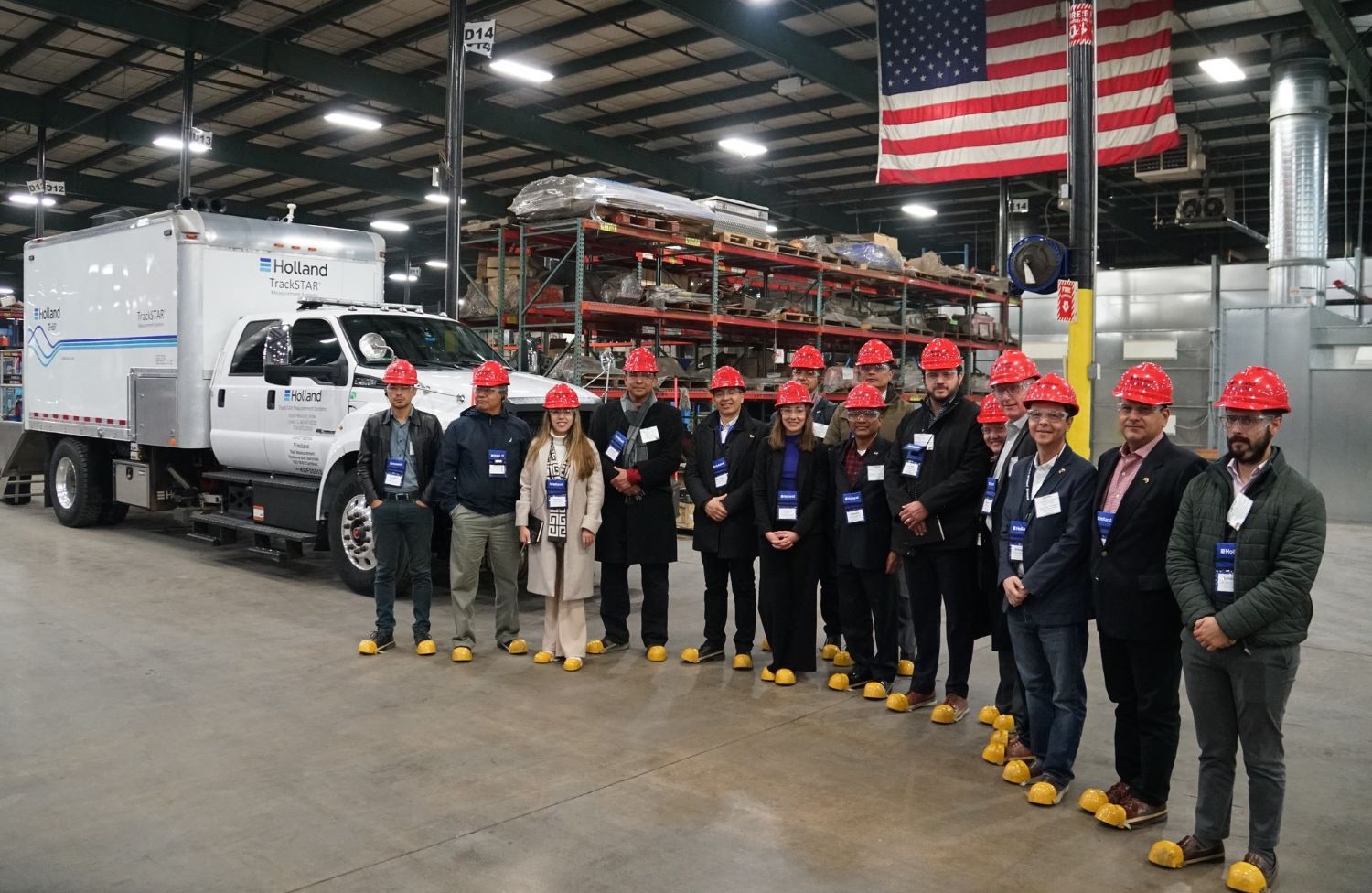
She added, “It’s fantastic that Fabiola is involved because she’s passionate and a thought leader in this area. I’m pretty confident that they chose her for the most important part of any business, and that’s the business owner. They fell in love with Fabiola, and that gives them confidence that our team will be amazing. As time goes on, there will likely be more opportunities for additional work.”
And that’s true because their selling point for the contract was definitely the team they presented and their capabilities. They really leverage their strengths to execute tasks, and that hits difference.
What sets Fabiola approach apart is that they’re not just a communications and marketing firm – they take a strategic perspective. When they approach a project, they don’t just think tactically or transactionally; they’re looking at it from a strategic planning point of view.
As stated by the contract winner, “If I were in charge of this DOD Command, I’d be thinking about what I want it to look like over the next five years. That’s our approach too, thinking strategically and planning for the future. We examine the customer’s needs, delve into their strategic plans, understand their strategic priorities for the next five years, and look at their KPIs. Then, we address all of that in our proposal. I believe that’s where our selling point lies.”
“We like to say that we outsmart our competitors.” Fabiola stated.
When Fabiola responded to proposals, her firm did not just present what they’ve done for others, the performance, and the accolades, although that’s essential.
As shared by Fabiola, many proposals are like big brag books, and they can be successful if you have a lot to brag about, depending on the selection team. But she recognizes that sometimes there’s someone on that selection team looking for an actual solution.
They’re reviewing your proposal with a solution in mind, not just your brag book. So, she positioned her brag book second and her first position in the proposal as the solution.
“We focus on ideating solutions to their problems, and that’s where we like to stand out and win.” Fabiola said.
Being a Real Troubleshooter – Save Money for the Government
Fabiola wants to collaborate with the National Guard, with a specific focus on the Georgia Army National Guard. Their intention is to broaden their involvement with the National Guard beyond the state of Georgia. She has recognized a pressing need for modernization within the National Guard, particularly in the military recruitment process.
Fabiola notices that recruiting has become a challenge in the current environment, emphasizing that the demographic of individuals being recruited differs from who the military was targeting 20 or 30 years ago.
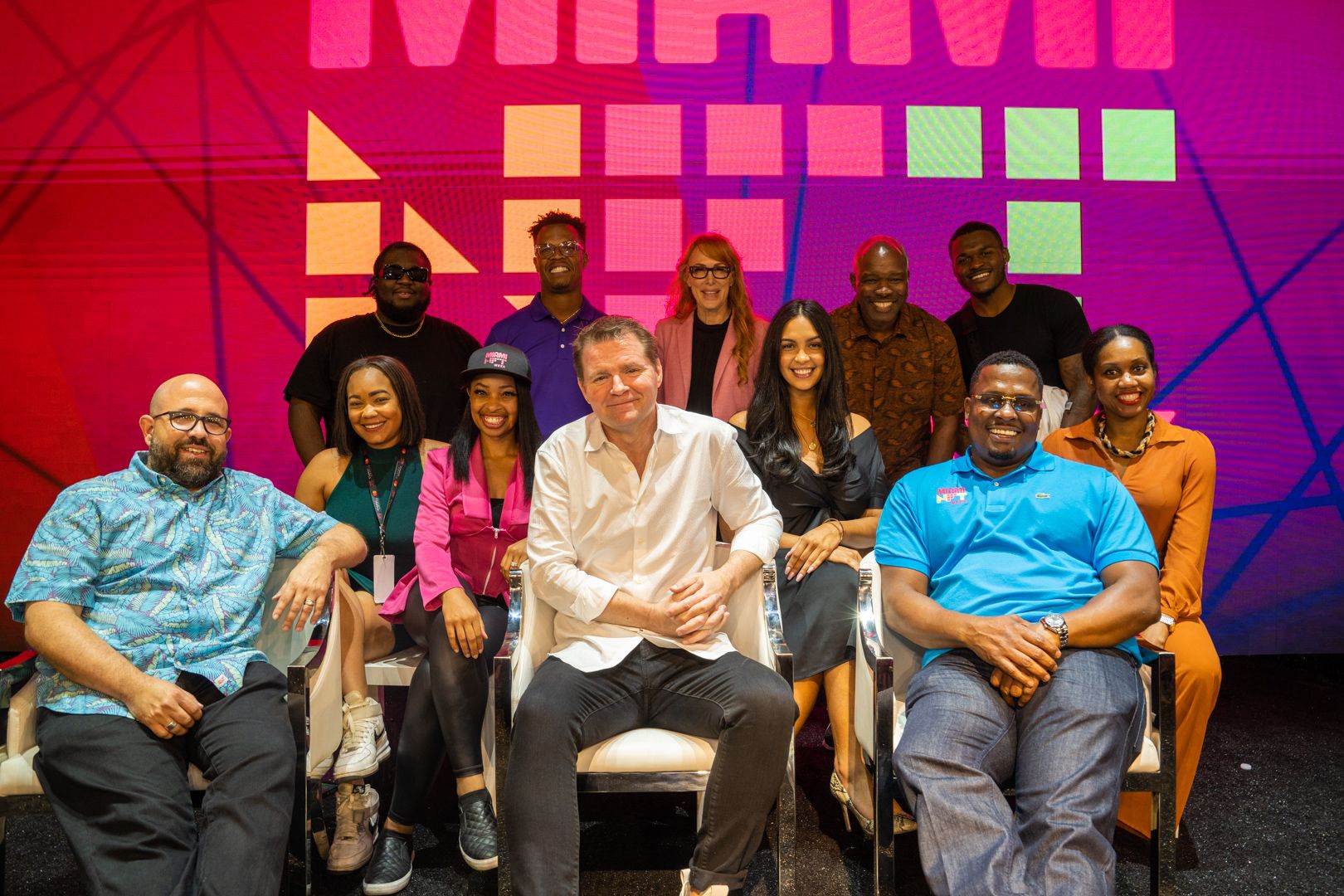
This shift is influenced by the fact that the country is not currently at war, which impacts both the recruiting process and people’s motivation to join the various branches of the military.
Moreover, the communication landscape has evolved significantly. You can’t just rely on radio or TV these days. Programmatic digital advertising, streaming services like Hulu and Netflix, and other digital platforms have made the landscape more complicated.
People join the military differently than they did before because they no longer have family connections with someone who served in the military in the past.
“For instance, the kids today don’t have a family member to talk about their experiences in Vietnam or Desert Storm. We’re starting to lose some of those stories, and the kids today aren’t connecting with them. So, we need to look at recruiting differently and consider other approaches.” She said
Fabiola added, “One promising trend I’ve noticed with the National Guard is that they’re starting to do NIL (Name, Image, Likeness) deals and tapping into the opportunity presented by NCAA athletes being able to monetize their brand.”
To add to the problem, Fabiola mentioned that programmatic advertising is also on the rise, given that people are increasingly watching content on their phones and streaming services. However, what she believes hasn’t been fully considered yet is that it’s not just an advertising solution.
Even a $60 million advertising contract won’t necessarily solve the recruiting issue. The solution is not just about pouring money into advertising. There are needs to be a total rebrand and refreshment in terms of what it looks like to serve, whether it’s in the National Guard, Air Force, or any branch of the military.
The contractor stated, “The narrative needs to be modernized to align with the realities of today’s youth, who view college, entrepreneurship, and innovation differently. Our goal is to be the agency that can help modernize the face of the military without spending $60 million on a single advertising effort that still doesn’t fully address the recruiting challenges.”
“We can save you money is what I’m saying,” she highlighted.
This is phenominal because a lot of businesses come to the government but don’t get the real issue of the stagnant process, Fabiola has taken the different turn to dive in and learn the pain point of the problem, then offer a real magic bullet. That’s one of the elements to her success in landing her $4.5M contract.
But Fabiola not only does contracting, she’s also part of the 8(a) program, that’s why she has a lot to elaborate on.
8(a) Program – Taste the Benefit After Taking on Challenges
Fabiola discovered the 8(a) program while working on a contract in Miami-Dade County. During a small business outreach event, she became inspired by the 8(a) program’s potential and its benefits for her business. This realization prompted her to pursue 8(a) certification.
“So, the 8(a) certification can be intimidating, especially in this new context we’re operating in. You have the social disadvantage part, and things being on pause. The 8(a) certification can seem very daunting for many small businesses.” Fabiola said.
Fabiola details the challenges her company faced during the 8(a) certification process, which took around 15 months and coincided with the COVID-19 pandemic. She believes she lost significant time and considers their first year in the program as the most challenging. The pandemic forced them to adapt to virtual interactions, and she feels that the absence of face-to-face meetings is a bittersweet.
“In nine years, knowing that we have six years of that left, the clock feels like it’s ticking. These three years have gone by so fast, and it’s probably going to go even faster, especially once we hit that five-year mark. From what I’ve heard, those last four years can feel like a blink of an eye.” Fabiola said.
Fabiola highlights that the 8(a) program offers many advantages, yet it doesn’t guarantee instant success.
But one of the beautiful things about the program is that you can form joint ventures, even after you graduate from the 8(a) program. As long as the rules don’t change, you can form joint ventures with other 8(a) companies, ANC’s (Alaska Native Corporations), Native Hawaiian organizations, and other similar entities.
This flexibility allows companies to continue leveraging your 8(a) status and collaborating with a wide range of partners to pursue opportunities.
Fabiola said, “We do have a sole-source contract with the Department of Defense, but it didn’t just magically land on our doorstep. We still had to put in the work. People often assume that once you have the certification, all the work will come to you, but that’s not the case. It was still a grind, and it took about an eight-month process.”
She added, “I believe it was our merits, capabilities, know-how, and strategic approach that won us the contract. I don’t think any other firm approached it the way we did on paper. While the 8(a) certification was a factor, it didn’t win the contract for us. We earned it on our own merits, and the 8(a) status was a helpful factor.”
However, Fabiola said that the 8(a) program is shrinking in her industry, leading her to shift focus and target available contracts and opportunities. In the upcoming fiscal year, she intends to team up with recently graduated 8(a) firms to secure work, underscoring the importance of collaboration. Her focus is on achieving multiple wins through partnerships rather than going solo.
Fabiola is candid about the demanding nature of the 8(a) program, acknowledging that many firms drop out early due to its rigor.
“I mention this because I don’t want others to be discouraged by the 8(a) process. There is a challenge in it, and many firms drop off in the first round because they find it too demanding. They might say, ‘This is too much, not worth it.’ But if that’s what’s required to play and win in this game, then that’s what you have to do.” Fabiola reflected.
Nurturing Connections – Building Relationship with BOS
Another benefit of the 8(a) program is that you have a Business Opportunity Specialist (BOS) assigned to you. And according to Fabiola, getting in touch with your BOS is very important.
Normally, BOS are responsible for managing around 200 other businesses, and you cannot wait for them to reach out to you. You have to proactively reach out to them, help them understand your business, your vision, and your goals.
When they reply, make sure to respond immediately. Staying regularly connected with your BOS is crucial, and when they organize local events or activities, try to show up. Having face-to-face interactions is also valuable.
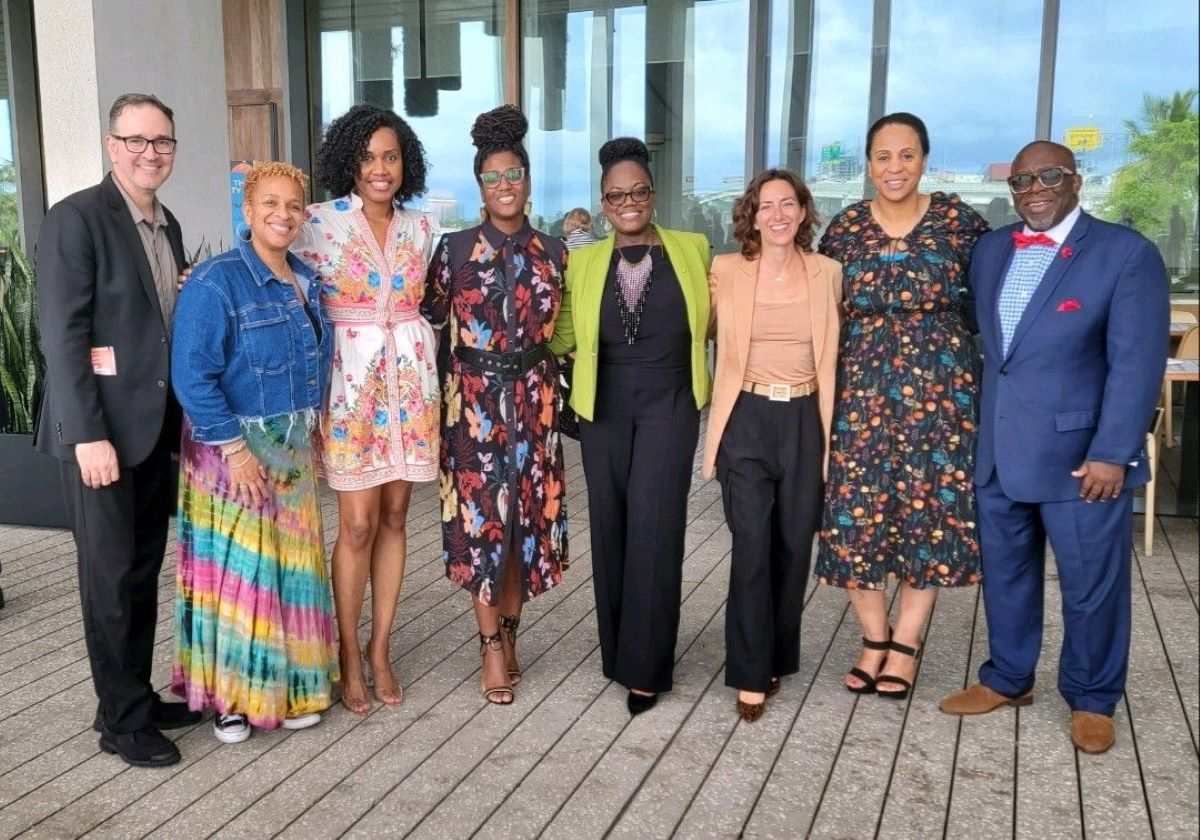
Contractors have to understand that your BOS won’t win contracts for you; you still have to do the job. However, they are there to answer your questions and provide guidance.
Fabila shared that, “For example, when I was working on the social narrative, my BOS helped me understand the process, the format, and how to handle various contract types, such as sole source or direct source. They act as a liaison between the program office and you, relaying important information.”
In fact, you’re assigned a BOS based on your region. However, there are cases where some 8(a) firms may be in one area, but their BOS is in a different state. This doesn’t sound very accessible but as shared by Fabiola, it’s a part of the process to go and meet them.
“If your BOS is not in your local market, which could be a little challenging, but that’s part of the business development process. Sometimes you have to get in a car or catch a flight; it’s what you have to do,” she said.
Ardent Step – Taking Full Advantage of the 8(a) Training
Part of the 8(a) program also includes training, which some firms may not fully realize or take a skip, but Fabiola has another plan for it.
“I signed up for everything, especially in the first couple of years. I completed all their training programs based on what I felt I needed to fill any gaps. In addition to the 8(a) training, there’s training associated with the 7(j) program as well,” she said.
She continued, “For example, there was a training program sponsored by the SBA called “Fed Business Speed Do,” or something similar. It involved a three-month 8(a) cohort where we met monthly and had assignments. We were assigned to a coach, and it was like a small group with 10 to 15 of us. Our coach took us through a programmatic approach, which was very beneficial. That was about a year ago, and I still connect with the coach to update him on our wins.”
She has taken part in events organized by the Catalyst Center, sponsored by the Small Business Administration (SBA). At these events, she connected with the center’s director, who offered her one-on-one sessions and assisted her in finding opportunities through tools her business doesn’t have subscriptions to.
Additionally, Fabiola attends events like Maryland PAG or Maryland Apex, even if they are in different states or markets, showing her commitment to learning and networking. She believes that as a business owner, it’s key to allocate time for valuable training opportunities, even when one’s schedule is hectic.




